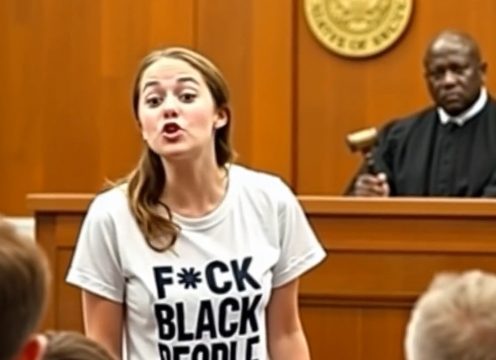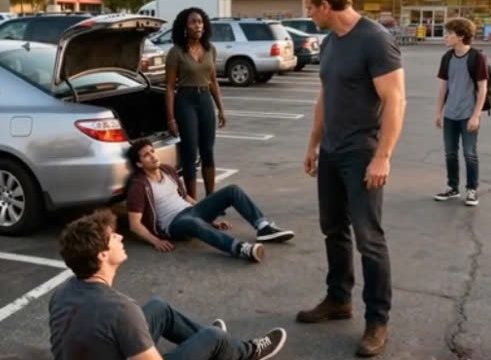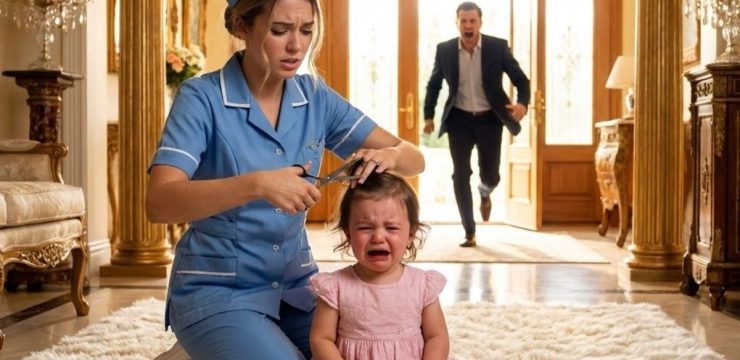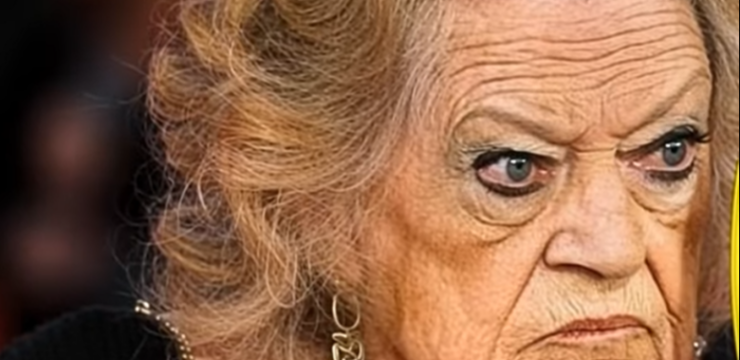I will never forget the image of my eighty-six-year-old granddad sitting alone on the porch with nothing but a worn-out suitcase, two trash bags, and a shivering little puppy held tightly against his chest. That was the moment I realized my stepmom had crossed a line she could never come back from. She thought she could strip him of his home and dignity without consequence, but she never expected that I had been waiting for the right chance to stand up for him, and I was more than ready to fight back.

I am twenty-five now, and two years ago I learned one of life’s hardest truths: family is not always defined by blood. Sometimes it is the quietest soul who carries the heaviest burdens, and for me that person has always been my granddad. When my grandmother passed away, my father and my stepmom Linda moved into Granddad’s home. My dad told me it was temporary, just until he could “help manage things,” but I should have known better. Almost immediately, changes began to take place. Grandma’s photographs disappeared from the mantel, her cherished china vanished from the dining cabinet, and even the floral curtains she had sewn by hand were replaced with bland beige panels that made the house look lifeless.
Each time I asked about it, Linda dismissed me with, “It was collecting dust,” as if my grandmother’s memory was nothing more than clutter to be cleared away. Through it all, Granddad never said a word. He sat in his recliner watching as the home he had built with my grandmother was stripped of everything that made it warm and alive. That was his nature—gentle, soft-spoken, never willing to complain even while his grief was being disrespected in the cruelest way. Everything changed one rainy evening when he went to visit Grandma’s grave, as he always did, and heard faint cries by the roadside. Following the sound, he discovered a small puppy with a broken leg, shivering in the wet grass.
Without hesitation, he picked her up, wrapped her in his coat, and rushed her to the vet. After three hundred dollars and a small cast, the puppy not only had a chance at life but also a name: Penny. From that day forward, Penny became his joy. He would text me pictures of her snuggled in his lap or dragging her little cast while trying to climb onto his chair. For the first time since Grandma’s passing, I saw light return to his eyes. He told me proudly, “She’s family now.” That is why my heart sank when I pulled into his driveway one weekend to find him outside with Penny in his arms and his belongings stuffed into bags. “Granddad, what’s going on?” I asked in shock.
His voice trembled as he explained, “Linda said Penny has to go. She claims a crippled mutt lowers the house value. I told her I wouldn’t give her up, so she packed my things and told me to leave with the dog.” My stomach turned. This was his home, the place he had built with Grandma, and yet Linda had the audacity to throw him out. With Dad away on business, she declared that it was her call. That was when something inside me broke. This was no longer just about curtains or dishes. It was about dignity, about standing up for the man who had given me nothing but love. That night I booked a room in a pet-friendly hotel for Granddad and Penny, promised him steak for dinner and chicken for Penny, and set out to put things right.
Linda’s biggest mistake was underestimating me. I spent hours digging through property records, deeds, and tax documents. It was all clear: the house legally belonged to Granddad, and Linda had no claim. The next morning, I called my friend Jessica, a journalist, and asked her to bring a hidden camera. When we arrived, Linda was sipping wine from one of Grandma’s crystal glasses. I asked her why Granddad was sitting outside with his bags, and without shame, she bragged, “Because he chose that mangy dog over his family. Either the mutt goes, or he goes. And frankly, when he finally kicks the bucket, this place will be worth a fortune.” Jessica’s camera captured every cruel word.
The following evening, I invited Linda to dinner at the hotel, pretending I wanted to make peace. She arrived dripping with arrogance, completely unprepared for what was about to happen. Granddad was already seated with Penny sleeping at his feet. I placed my phone on the table and hit play, letting her own voice echo back at her: “Either the mutt goes, or he goes… I’m not going to let some crippled rescue dog drag down our property value.” Her face turned pale. Calmly, I told her, “Here’s how this works. The house is in Granddad’s name. You have no legal rights. And now I have proof of your abuse and exploitation. You’re going to leave tonight, or this video goes to Dad, the neighbors, and the internet.
Are we clear?” She tried to bluff, but she knew she was finished. She stormed out, and within weeks, when Dad returned and saw the footage, even he didn’t defend her. His face went pale, then red with anger. Within a month, Linda was gone for good, and divorce papers soon followed. Granddad returned to his home with Penny, where he belonged. Penny’s leg healed, and she now trots happily beside him everywhere, his loyal “shadow soldier.” Last Sunday, I found them on the porch, Penny barking at the mailman while Granddad chuckled softly.
He turned to me with tears in his eyes and said, “Kiddo, I thought I lost everything when your grandma died. Turns out, I still had what mattered most—a family who fights for each other.” Linda thought she could erase memories, throw out an old man, and discard an innocent animal, but in the end, she lost everything. My granddad kept his dignity, his home, and his best friend, and I learned that the deepest love is not spoken—it is shown when you stand up for the people who matter most.





